Filter by
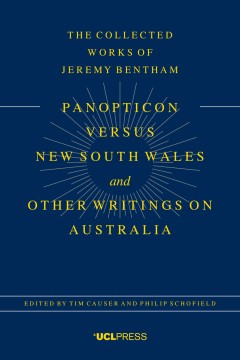
Panopticon versus New South Wales and other writings on Australia
The present edition of Panopticon versus New South Wales and other writings on Australia consists of fragmentary comments headed ‘New Wales’, dating from 1791; a compilation of material sent to William Wilberforce in August 1802; three ‘Letters to Lord Pelham’ and ‘A Plea for the Constitution’, written in 1802–3; and ‘Colonization Company Proposal’, written in August 1831, the…
- Edition
- -
- ISBN/ISSN
- 9781787359369
- Collation
- xvii, 491 p.
- Series Title
- -
- Call Number
- 365.3409944 PAN T
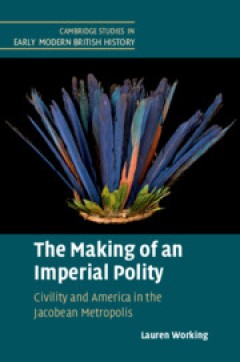
The Making of an Imperial Polity : Civility and America in the Jacobean Metro…
Bringing to life the interaction between America, its peoples, and metropolitan gentlemen in early seventeenth-century England, this book argues that colonization did not just operate on the peripheries of the political realm, and confronts the entangled histories of colonialism and domestic status and governance. The Jacobean era is reframed as a definitive moment in which the civil self-prese…
- Edition
- -
- ISBN/ISSN
- 9781108625227
- Collation
- xiv, 270 p ; ill
- Series Title
- -
- Call Number
- 970.02 MAK L
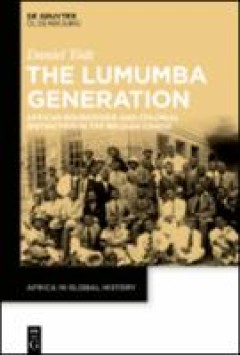
The Lumumba Generation
How and why did the African elite turn from loyal intermediaries into opponents of the colonial state? This book wants to help better understand the dramatic political and cultural processes of decolonization in the Belgian Congo. Focusing on the making of a bourgeois African elite, the book deals with the social identity and cultural self-representations, the daily life and political activism …
- Edition
- -
- ISBN/ISSN
- 9783110709308
- Collation
- -
- Series Title
- -
- Call Number
- -
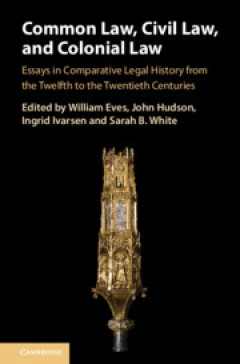
Common law, civil law, and colonial law : essays in comparative legal history…
Common Law, Civil Law, and Colonial Law builds upon the legal historian F.W. Maitland's famous observation that history involves comparison, and that those who ignore every system but their own 'hardly came in sight of the idea of legal history'. The extensive introduction addresses the intellectual challenges posed by comparative approaches to legal history. This is followed by twelve essays d…
- Edition
- -
- ISBN/ISSN
- 9781108955195
- Collation
- ix, 350 p. ; ill
- Series Title
- -
- Call Number
- 340.209 EYE c
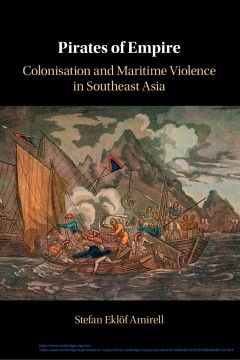
Pirates of empire : colonisation and maritime violence in Southeast Asia
The suppression of piracy and other forms of maritime violence was a keystone in the colonisation of Southeast Asia. Focusing on what was seen in the nineteenth century as the three most pirate-infested areas in the region - the Sulu Sea, the Strait of Malacca and Indochina - this comparative study in colonial history explores how piracy was defined, contested and used to resist or justify colo…
- Edition
- -
- ISBN/ISSN
- 9781108594516
- Collation
- ix, 266p. : ill.
- Series Title
- -
- Call Number
- 364.164 AMI p
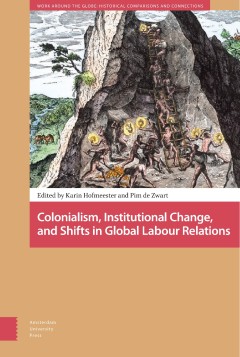
Colonialism, institutional change, and shifts in global labour relations
This book offers a view of shifts in labour relations in various parts of the world over a breathtaking span, from 1500 to 2000, with a particular emphasis on colonial institutions.
- Edition
- -
- ISBN/ISSN
- 9789462984363
- Collation
- 373p. : ill.
- Series Title
- -
- Call Number
- 331.09 COL c
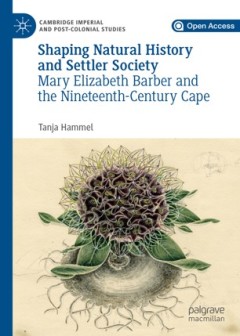
Shaping natural history and settler society : Mary Elizabeth Barber and the n…
This book explores the life and work of Mary Elizabeth Barber, a British-born settler scientist who lived in the Cape during the nineteenth century. It provides a lens into a range of subjects within the history of knowledge and science, gender and social history, postcolonial, critical heritage and archival studies. The book examines the international importance of a marginalized scientist, th…
- Edition
- -
- ISBN/ISSN
- 9783030226398
- Collation
- xxiv, 360p. : ill.
- Series Title
- -
- Call Number
- 968.703092 HAM s
 Computer Science, Information & General Works
Computer Science, Information & General Works  Philosophy & Psychology
Philosophy & Psychology  Religion
Religion  Social Sciences
Social Sciences  Language
Language  Pure Science
Pure Science  Applied Sciences
Applied Sciences  Art & Recreation
Art & Recreation  Literature
Literature  History & Geography
History & Geography